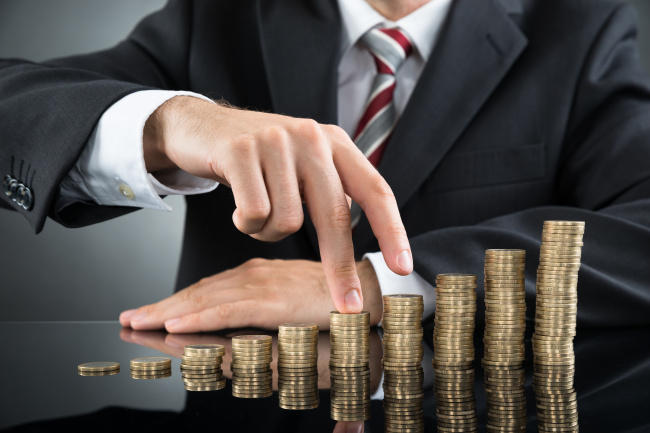Tax revenue grew faster than GDP in Korea last year
By Korea HeraldPublished : April 16, 2017 - 15:02
The South Korean government’s tax revenue grew faster than the gross domestic product’s annual increase in the country last year, data showed Sunday.
The annual tax revenue amounted to 318.1 trillion won ($278.5 billion) last year, of which 242.6 trillion won was collected by the central government and the remaining 75.5 trillion won by the local governments, according to data from the Finance Ministry, the Interior Ministry and the Bank of Korea.
Tax income at the central government surged 11.3 percent in 2016 from a year earlier. Those at the local governments, rose 6.3 percent over the same period. The two growth rates are much higher than the 5 percent annual growth of nominal GDP in 2016.
The annual tax revenue amounted to 318.1 trillion won ($278.5 billion) last year, of which 242.6 trillion won was collected by the central government and the remaining 75.5 trillion won by the local governments, according to data from the Finance Ministry, the Interior Ministry and the Bank of Korea.
Tax income at the central government surged 11.3 percent in 2016 from a year earlier. Those at the local governments, rose 6.3 percent over the same period. The two growth rates are much higher than the 5 percent annual growth of nominal GDP in 2016.

The fast rise in tax revenue was attributed to large increases in income tax, corporate tax and value-added tax last year, which each increased by more than 7 trillion won. The 2015 cigarette tax hike also helped the government collect more taxes a year later. Tax income from cigarette consumption surged 23.4 percent on-year, or by 700 billion won.
The tax burden ratio, or the proportion of the total tax income out of the GDP, rose to 19.4 percent in 2016, 0.9 percentage point up from 18.5 percent in 2015, data showed.
The figure is the highest since 2007 when the ratio was 19.6 percent under the former Roh Moo-hyun administration.
However, Korea’s tax burden ratio is still considered low compared to members of the Organization for Economic Cooperation and Development.
According to the OECD’s data, Korea’s tax burden ratio stood at 18 percent in 2014, the third lowest among the 35 OECD member countries. The average tax burden ratio among the 35 OECD members was 25.1 percent in 2014. Denmark had the highest tax burden with 49.5 percent, followed by Sweden with 32.9 percent and Finland with 31.2 percent. Mexico and Slovakia were the only two countries with lower tax burdens than Korea, with 12 percent and 17.9 percent, respectively, in 2014.
Korea’s latest tax burden ratio was 19.4 percent in 2016, but it is likely to be considered low among OECD members, although the OECD is still collecting 2015 data from Japan, Poland, Australia and Mexico.
Presidential candidates have been making pledges on a tax increase, amid greater welfare needs due to the country’s low birth rate and fast aging population.
Four of the major contenders -- Moon Jae-in of the main opposition Democratic Party of Korea, Ahn Cheol-soo of the centrist People’s Party, Yoo Seong-min of the splinter conservative Bareun Party and Sim Sang-jeung of the minor progressive Justice Party – vowed to seek a tax increase in the next government, during a TV debate among five major candidates Thursday. Hong Joon-pyo of the conservative Liberty Korea Party was the only one against raising taxes.
The two leading candidates Moon and Ahn would first seek to reduce tax incentives on conglomerates to collect more tax. If such a measure does not incur enough tax revenue, Moon said he could seek to raise income tax for high income earners and even raise the highest corporate tax rate from the current 22 percent to 25 percent for companies earning more than 50 billion won of taxable income a year.
Ahn said he would seek a tax increase, on the condition that “transparency is drastically enhanced.”
Yoo said he would raise corporate tax back to 25 percent. It was cut to 22 percent in 2009 during the Lee Myung-bak administration.
Sim said she shared Yoo’s view on corporate tax hikes.
By Kim Yoon-mi (yoonmi@heraldcorp.com)
-
Articles by Korea Herald




![[Herald Interview] 'Amid aging population, Korea to invite more young professionals from overseas'](http://res.heraldm.com/phpwas/restmb_idxmake.php?idx=644&simg=/content/image/2024/04/24/20240424050844_0.jpg&u=20240424200058)













![[KH Explains] Korean shipbuilding stocks rally: Real growth or bubble?](http://res.heraldm.com/phpwas/restmb_idxmake.php?idx=652&simg=/content/image/2024/04/25/20240425050656_0.jpg&u=)

